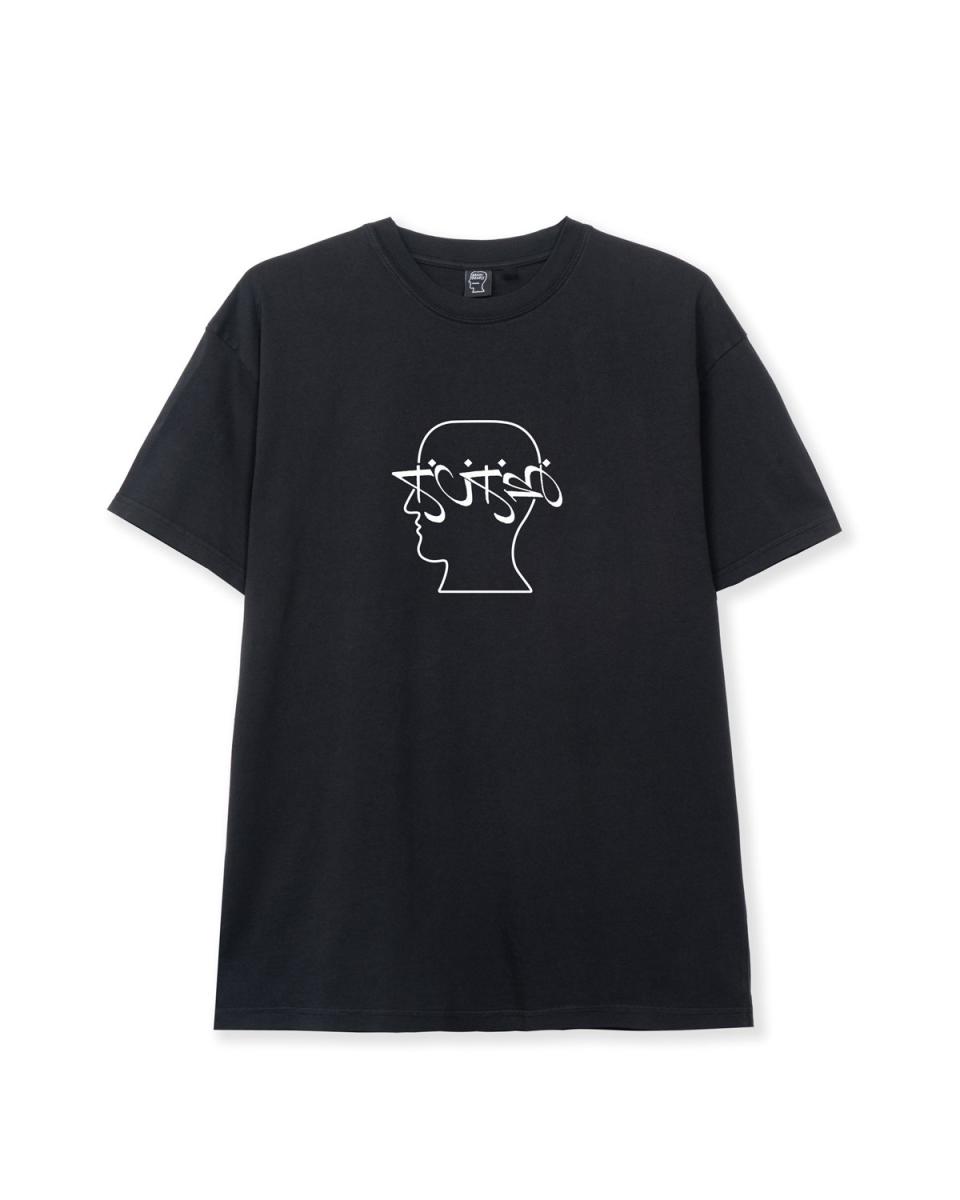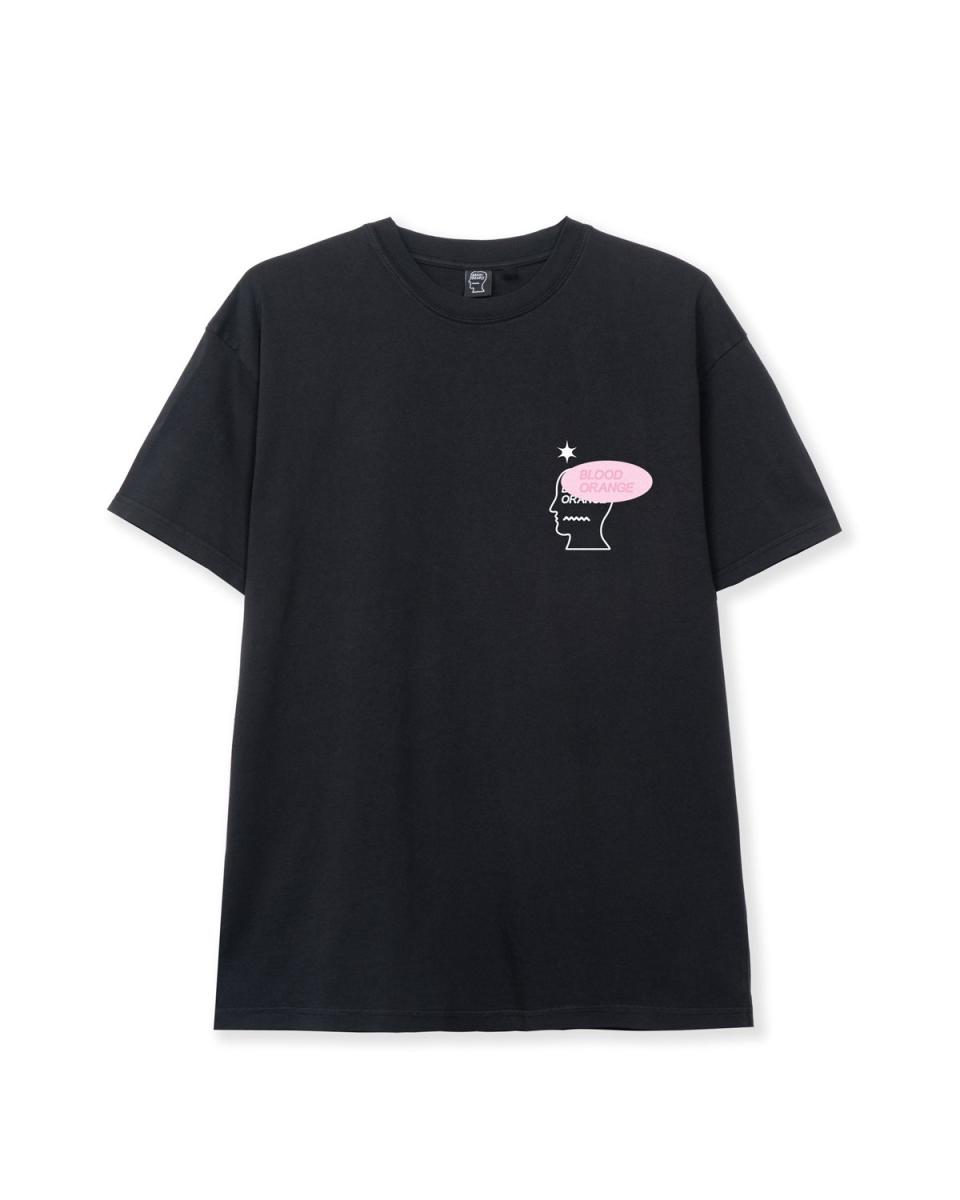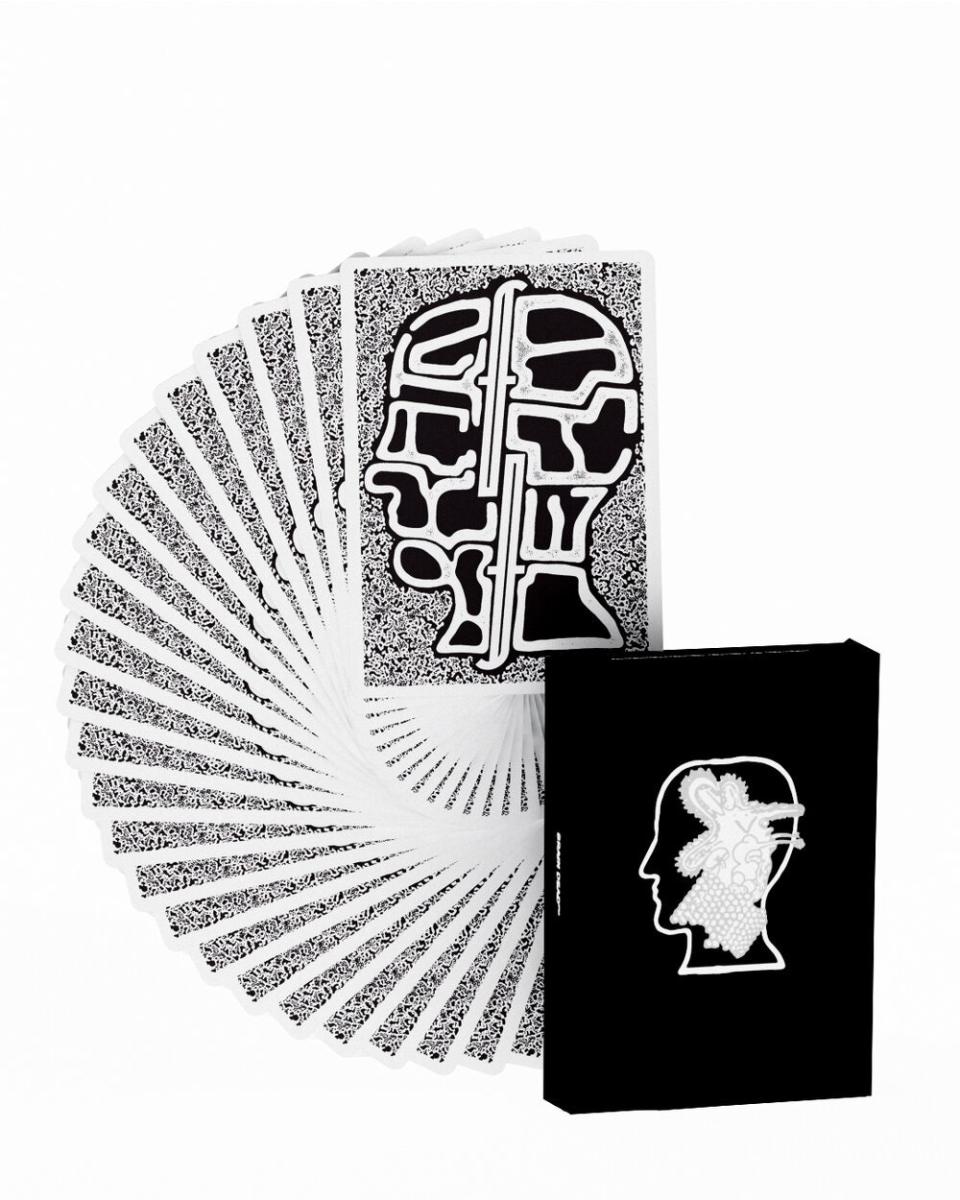How to Raise a Million Bucks for Charity with T-Shirts, According to Brain Dead’s Kyle Ng
“One has the power of a billion dollars plus investment,” Kyle Ng, the founder of the brand Brain Dead wrote on Instagram. “One has the best supporters in the world.” Over the phone, Ng swears that his post, highlighting the fact that both Supreme and his brand both raised $500,000 for charities aiding the Black Lives Matter movement, wasn’t meant as a diss. Instead, he says, we should think of it as a visual love letter to his supporters: “It was more about, look at what we can do when this company with a billion-dollar backing did the same thing” Ng says. “It's the people who do that.”
As protests against police brutality and systemic racism prompted by the murder of George Floyd have swept the nation, clothing brands across the spectrum have struggled to find their voices. Ng has experienced that firsthand: when he approached the larger corporations he collaborates with to work on something together to address racism and police brutality, he got polite demurrals. So instead of waiting for carefully plotted-out strategies to fall into place, he contacted Dev Hynes of Blood Orange. Together, they designed a T-shirt in two hours, and put it on sale the next day. While other brands were thumbing through the thesaurus and softly cooking statements to express how they stand against racism or for respect, Hynes and Ng were well on their way to raising nearly $500,000 for charity.
And now, Ng wants to do more—to make the brands that want to collaborate with him step up and do the same. Want to capture some of Brain Dead’s run-off cool? Then you need to do more than a token gesture. A partnership with The North Face, for example, might entail a T-shirt—and funding for field trips for young kids without access to the outdoors. Even when it is just a T-shirt, Ng wants to maximize what he’s able to do: Los Angeles Apparel, the company Ng is working with on charity tees, is donating all the supplies so more money can go to charity.
In what is undoubtedly a strange time to run a brand, we spoke to Ng about how he’s using his to hopefully do some good.


GQ: You’ve used your brand in really productive ways over the past week—using both money-making charity tees and your voice as a collaborator to ask for help from larger partners. How did you land on this strategy?
Kyle Ng: The big thing was last Saturday. After the protest in LA, I went to help clean up the community in the streets. I really saw the people helping clean up different stores, [in] different neighborhoods. I helped paint Canter’s [Deli, the legendary Fairfax restaurant] and all these different places. And I couldn't stop crying, because seeing the community really help out their own was so important. There's something about this idea of being put on a pedestal as a brand when real people were just out there helping clean up the streets.
That night, I got back to my house and I reached out to a brand—I won't say the name, because I don't want to shoot them out. I said, “Let's do a project in L.A. and let's do it now and launch it and donate to the rebuilding of L.A.—help clean up the streets and help the community. And their response was, “Hey, we need to talk to our board because we want to do something, but I'm not sure if we're ready to do it, and we have to strategize our plan.” That really irked me because I don't know what a strategy is at this time. It's really just doing it.
So I hit up our friend Dev Hynes [of Blood Orange] and was like, “Yo, are you cool to do this?” And he's like, “Fuck yeah.” We made it a T-shirt in the next two hours and we launched it the next day. There's something about that energy of just being able to create stuff very fluidly with your friends that I think is so important.
People felt that energy—it was almost a subconscious energy, and you could tell it wasn't coming from some corporate campaign or structure. Right now, the people are really the strength and if you support the people they'll support you.
What's the story behind the design?
We were like, “What should it say?” He gave us the idea for the Blood Orange graphic, but then the main thing was the back, and we weren't really sure what to put there. And then his girlfriend [and actress] Tessa Thompson was like, put this on the back and he did. I didn't know that until he posted thanking Tessa Thompson for the fine words. But I was like, “Fuck, that's even tighter.”
Were you surprised by the amount of money it raised?
The night before it went up I thought we were going to make like $40,000, and it was going to be so tight. That's how much he would usually raise: $40,000 to $100,000, which is awesome. But somehow it got so crazy. The final exact number was $480,000. But with all the charity stuff we should probably be able to hit a million dollars of pure donation.
With all the other items?
Yeah, there's a collaboration with Fontaine Cards. I just got a text they're probably at like $40,000 to $50,000 in the first two hours. The power of the people speaking up and supporting is really incredible.
What made you want to post something to Instagram, highlighting what you guys did versus what Supreme was able to do?
Well, I think it wasn't really a diss to Supreme, to be honest. It was more about, look at what we can do when this company with a billion-dollar backing did the same thing. It's the people who do that. All I can say is I'm really happy that the people who support us got us to the same level as of the top brands in our market.


I don't want to put words in your mouth, but it sounds like what’s frustrating about what’s happening with these brands is that when they collaborate with you, they're benefiting off of streetwear culture, which is built off black culture. But then when you ask them to step up, it becomes this bigger conversation. Is that right?
Totally. To me, it's pretty mindless because it's not like we needed a huge campaign. It's just, like, let's help out when we can. But at the end of the day, a lot of these brands I reached out to just did exactly what we did a week later. And you're just like, “That was your big plan?”
And that's when I just got frustrated. I think there's such a lack of sincerity for the people, and not just towards the black community. I think the black community is the linchpin of what's happening. People are selling ethics and communities and culture, and they don't build any real culture into their company.
If you see someone in your neighborhood being attacked, you help out, because that's your neighbor. You help paint your neighbor's place. You do all these things to help your neighbor. I don't have to think about it in my house, and figure out the best paint to buy the neighbor. I'm out there.
How do you imagine working with collaborators on this?
We have to be physical and we definitely are ramping up super hard with all our collaborations and partnerships. We want to have a meaningful 360 approach.
What does that mean? When you work with brands like North Face and Converse, what does a 360 approach look like?
Let's say it was North Face. I'd reach out to them and be like, “Look, we're going to sell goods, we're going to profit, we're going to make a lot of money.” We have art direction. We have campaigns. We'll have store build-outs and installations. So that usually was the 360 approach back in the day—reaching physical and digital customers. But now the 360 approach has to have ethics. So if I look at the outdoor market, what are they doing in this space?
It's cool to just say, “Oh, we support the black community,” but how do you support the black community or people of color? What I want to do is raise money or take a lot of that budget for an activation to help provide inner-city kids access to the outdoors or climbing gyms. So why don't we create an organization inside one of the climbing gyms to help transport kids and teach them how to climb and then take them out for field trips to areas that are close by?
Is it just that they leverage brands like Brain Dead so much for cool and inroads to this certain culture, and so you are trying to use that position to get them to be part of something bigger?
A lot of it was not trying to be a negative call out—like, “Hey guys, you've abused your power with us.” It was more that we're powerful together. Obviously people stand in line for this stuff, but why won't we stand in solidarity for something? Or why don't we stand for something that really matters?
I don't want to say this is marketing at all because it wasn't, but at the end of the day, we sold a lot of shit that day when we sold the Dev Hynes shirt. And I didn't even expect that, but that's how you see people really care. They want to support brands that are doing the right thing.
One of the brands you tagged was Converse, and I wonder if you've seen what Tremaine Emory is doing by saying he won’t release his shoes with them until the brand makes concrete changes? [Ed.: Emory says he won’t release his new collaborative shoes with Converse inspired by David Hammons’sAfrican-American Flag until Nike meets a number of conditions, including halting all support of the Republican Party and disclosing its number of black employees.]
Yeah, I think that's fire.
Have you talked to him at all?
I haven't talked to him in a while. Converse reached out to me to discuss my goals or what we can do together, which I really respect. That's the first move, and we'll see what happens. But I think what Tremaine’s doing is smart because he's holding people accountable. That's all we can do because there's no other side. This is a pretty black and white situation.
And as a community who obviously profits off black culture, we just want you to step up. That’s really ballsy, and he did the right thing. I support Converse, but I also support Tremaine for feeling that certain way.


Do you think collaborators and brands like yours have a responsibility to force systemic change like this?
We have to, if you're really about what you're about. The only reason why we wouldn't be talking up is because we'd be complacent with our money. I would like to not speak up against these brands because they can make us a lot of money. That'd be awesome, right? But then you really realize, Why am I not speaking up? Why am I so worried about that? I'm an independent business. I built my thing off ethics. Why would I stop now?
Is it a weird time to run a clothing brand and try and figure out how to use your voice? Or do you feel like you're perfectly suited to the moment?
It's perfectly aligned. Like, since COVID hit, our business has been up 120%. And I think a lot of it had to do with the fact that we are just doing extra because we have time to do extra and communicate what really matters to us and helping out causes that really matter to us. I think that really resonates with people. And if people are putting their dollars to us, we’ve got to speak up for them.
There's been conversation, too, around the efficacy or the challenges of releasing another T-shirt through all this. And every time something horrible happens there's always a fundraiser tee. But you seem to have really embraced that, and you've raised a ton of money doing it. Why does that approach work for you?
That's what we do for a living. I'm not here to shame people for making products for a good cause as long as it is for a good cause. The main thing is you can sniff when it's real or not. I would also like to not just release another T-shirt.
There is this idea going around right now that we can't rely on brands and corporations—the revolution will not be sponsored. But you are trying to come at this from a human place while running a brand at the same time. How do you balance that?
The brand is our interests, it's our people, it's the food we eat. Everything we do with the brand is about the music and culture we're about. So why wouldn’t it embrace the politics we’re about?
Originally Appeared on GQ

